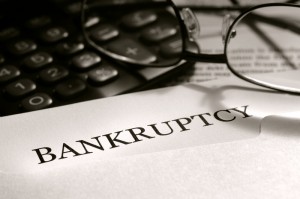 Most bankruptcy filers in Texas get to keep their home in car. In Chapter 7 bankruptcy cases debtors protect the equity they have in their secured property using exemptions. For example, if a debtor owns a vehicle worth $15,000 and the balance on the note secured by the vehicle is $10,000, then the debtor’s equity is $5,000. As long as the debtor can exempt the $5,000 of equity in the vehicle then he can keep his vehicle. Fortunately, in Texas we have very good exemptions, so most bankruptcy debtors are able to exempt the entire value of their home and vehicles.
Most bankruptcy filers in Texas get to keep their home in car. In Chapter 7 bankruptcy cases debtors protect the equity they have in their secured property using exemptions. For example, if a debtor owns a vehicle worth $15,000 and the balance on the note secured by the vehicle is $10,000, then the debtor’s equity is $5,000. As long as the debtor can exempt the $5,000 of equity in the vehicle then he can keep his vehicle. Fortunately, in Texas we have very good exemptions, so most bankruptcy debtors are able to exempt the entire value of their home and vehicles.
Debtors in Chapter 7 must also continue making payments to the creditor after filing bankruptcy if they wish to keep their vehicle. If they stop making payments then the vehicle will be repossessed and then sold. The same thing applies to homes. Debtors in Chapter 7 bankruptcy cases that wish to keep their home after filing bankruptcy must be current on the mortgage payment as of the date of filing and continue to make payments after the case is filed. Failure to make the mortgage payment, keep the property insured, and pay the property taxes will most likely result in the house eventually being foreclosed.
In Chapter 13 bankruptcy cases, secured claims are paid either directly by the debtor or are paid through the Chapter 13 plan. As long as the debtor complies with the terms of their Chapter 13 plan, meaning they make payments either to the trustee who will pay the creditor or make the payments directly, then the secured property is protected from seizure by the creditor or the trustee. The bottom line is that the debtor can keep their secured property as long as someone is making payments to the lender. Debtors must also keep the property insured and pay property taxes as well.